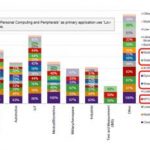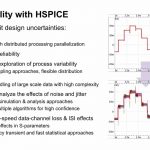You have certainly experienced that modern mobile phones are used for more than phone calls and do not have room for multiple connectors. A new approach for audio connectivity is needed, allowing product designers to retire the 3.5mm jack. Considering the USB audio protocol to replace the analog audio solutions, typically using… Read More
SNUG and Robots
I got an invite to the SNUG (Synopsys User Group meeting) keynotes this year. I could only make it to the second keynote but what a treat that was. The speaker was Dr. Peter Stone, professor and chair of CS at UT Austin. He also chaired the inaugural panel for the Stanford 100-year study on AI. This is a guy who knows more about AI than most… Read More
SNUG 2017 Keynote: Aart de Geus on EDA Fusion!
I spoke with Aart before his SNUG keynote and found him to be very relaxed and upbeat about EDA and our future prospects which reminded me of my first ever (cringe-worthy) blog, “EDA is Dead”. Now, eight years later, we have what Aart calls “EDA Fusion” to thank for the reemergence of EDA as a semiconductor superpower, absolutely.… Read More
A Formal Feast
It’s not easy having to deliver one of the last tutorials on the last day of a conference. Synopsys drew that short straw for their tutorial on formal methodologies at DVCon this year. Despite that they delivered an impressive performance, keeping the attention of 60 attendees who said afterwards it was excellent on technical content,… Read More
Virtual Modeling Drives Auto Systems TTM
The electronics market for automotive applications is distinguished by multiple factors. This is a very fast growing market – electronics now account for 40% of a car’s cost, up from 20% just 10 years ago. New technologies are gaining acceptance, for greener and safer operation and for a more satisfying consumer experience. Platforms… Read More
Recipes for Low Power Verification
Synopsys hosted a tutorial on verification for low power design at DVCon this year, including speakers from Samsung, Broadcom, Intel and Synopsys. Verification for low power is a complex and many-faceted topic so this was a very useful update. There is a vast abundance of information in the slides which I can’t hope to summarize… Read More
Driver Assistance and Autonomous? Need ASIL D Ready Certified CPU!
The automotive segment is moving from a kind of niche, filled with commodities and highly specialized low complexity IC, to an innovative and very dynamic segment attracting most of the big players, from Qualcomm to Nvidia or Intel. These chip makers are targeting automotive as they need to find new growth areas, and they have quickly… Read More
Synopsys and PhoeniX Demo Photonic IC Flow Using AIM PDK at OFC
Synopsys has long been known for its leading position in the digital logic synthesis world. More recently however, the company started delving into the world of photonic integrated circuit (PIC) design. Synopsys started down this path from the system level with a 2010 acquisition of Optical Research Associates and their CODE… Read More
Using HSPICE StatEye to Tackle DDR4 Rail Jitter
The world is a risky place, according to Scott Wedge, Principal R&D Engineer at Synopsys, who presented at the Synopsys HSPICE SIG on Feb 2[SUP]nd[/SUP] in Santa Clara. Indeed, the world circuit designers face can be uncertain. Dealing with risk and departure from ideal was a main theme in the fascinating talks at this dinner… Read More
FPGA Design Gets Real
FPGA’s have become an important part of system design. It’s a far cry from how FPGA’s started out – as glue logic between discrete logic devices in the early days of electronic design. Modern day FPGA’s are practically SOC’s in their own right. Frequently they come with embedded processor cores, sophisticated IO cells, DSP,… Read More











